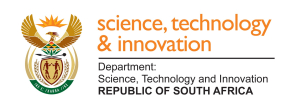SANEF’s Seminar aims to preserve indigenous languages in SA
21 August 2024
The seminar hosted by the South African National Editor’s Forum (SANEF) in collaboration with the Pan South African Language Board (PanSALB), the United Nations South Africa and the South African Agency for Science and Technology Advancement (SAASTA), focused on the media’s role in the development and preservation of indigenous languages.
Held recently at the Radisson Blue Hotel in Sandton, Johannesburg, the event addressed crucial topics such as the impact of artificial intelligence on media, strategies to attract digital advertising to the indigenous languages media sector, and the preservation of these languages.
The seminar underscored the critical need for continued efforts to revitalize indigenous languages, celebrate linguistic diversity, and ensure these languages are preserved and utilised by the media correctly.
Building on the success of the previous year’s seminar, the event highlighted significant progress, such as the translation of the Press Council of SA (PCSA)’s Press Code into various indigenous languages by the United Nations South Africa. Another notable development was the announcement of an indigenous language journalism short course that the North West University and SANEF’s Education and Training subcommittee are developing. The course will be launched next year.
Mr Reggy Moalusi, SANEF executive director said the seminar aimed to foster meaningful conversations and debates, leading to actionable points that will drive the promotion and utilisation of indigenous languages in both formal and informal media settings.
“As we mark 30 years of democracy and the vital role of linguistic diversity in South Africa’s media landscape, we also celebrate the International Decade of Indigenous Languages 2022–2032 and the International Day of the World’s Indigenous Peoples. These milestones underscore the United Nations’ priority of multilingualism and our commitment to safeguarding and promoting indigenous languages. Ensuring that every language is respected and celebrated is essential to preserving cultural heritage and advancing inclusive development,” said Nelson Muffuh, UN resident Coordinator in South Africa.
Speaking at the seminar, SANEF Chairperson, Ms Nwabisa Makunga said, “There is no greater time to recognise, develop and invest in nurturing of our indigenous languages than this. Our 30th year of our democracy provides us with an opportunity to truly reflect on the journey we have travelled and importantly, to critic our own commitment to creating an inclusive society.”
“Language remains a significant metric with which we must measure this commitment. As the South African National Editors Forum, we recognise that public interest media must play a crucial role in the preservation of our languages. Universal access to information is about the accessibility of platforms that deliver credible information as well as, equally, the language in which such information is delivered,” she added.
The CEO of PanSALB, Mr Lance Schultz, emphasised the importance of revitalising indigenous languages. He highlighted the critical role that the media has played in the past in preserving these languages and encouraged journalists to continue the legacy of the media leading efforts in language preservation through their use in print and broadcast media.
He said, “The significance of safeguarding and promoting indigenous languages within our society cannot be overstated. Language serves not only as a means of communication, but also embodies a fundamental aspect of our identity, culture, and heritage.”
“In an effort to level the playing field for indigenous languages to not only survive, but to thrive within the media sector, PanSALB has made submissions to the Competition Commission to include the amendment of Section 6(3)(a) of the Constitution to increase the minimum number of official languages used by the national government for official purposes. We believe that if government departments are obligated to communicate in more official languages, this would in turn bode well for the media sector, particularly smaller community media houses in terms of generating advertising revenue. This constitutional amendment would also ensure equitable treatment of official languages,” he added.
Mr Zamuxolo Matiwana from SAASTA, highlighted the media’s pivotal role in language preservation and the success of the Science Journalism Internship program funded by the Department of Science, Technology and Innovation. The mainstream media programme was launched last year in collaboration with SANEF.
He shared the project impact in the last financial year; the internship produced 962 stories in total for the SABC, Power FM and News24. The programme currently employs 21 interns, 2 for News24 based at the Climate Desk in Cape Town, 6 for Power FM and 13 for the SABC based in all provinces.
“SABC interns managed to produce content for all the SABC platforms in various indigenous languages including television and digital media. Hundred and one (101) stories were published in isiXhosa, followed by Tshivenda (80 stories), SiSwati (69 stories), isiZulu (56) and 552 stories were published in English. Out of 962 stories produced in the last financial year, 345 were science and technology,” he concluded.


 The South Africa Agency for Science and Technology Advancement (SAASTA) is a business unit of the
The South Africa Agency for Science and Technology Advancement (SAASTA) is a business unit of the 
